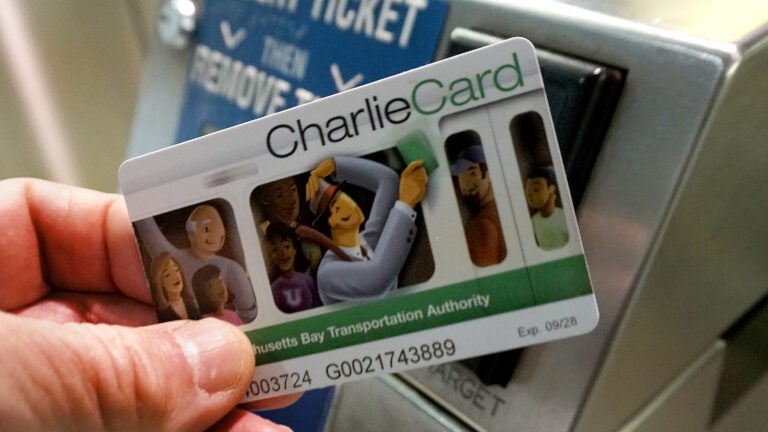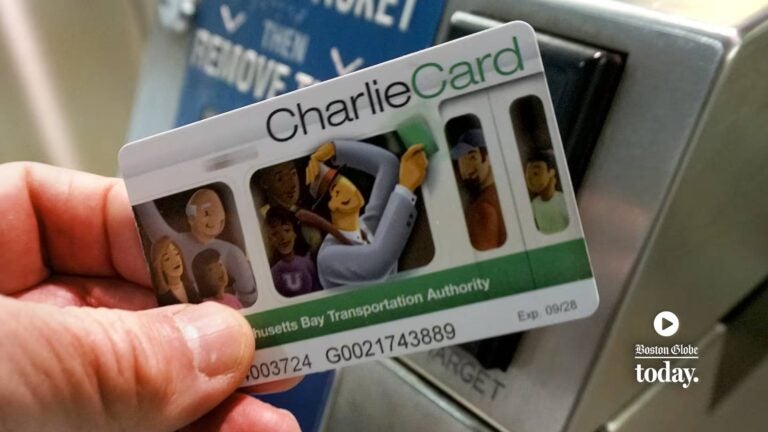Wickedpedia
How a protest about rising transportation fares inspired the name behind the MBTA’s payment method, and the future of the Charlie brand.
MBTA riders have long used Charlie tickets and CharlieCards for trips across the subway and rapid transit system. But visitors and newcomers (and maybe a few locals), have perhaps wondered: Who is Charlie, anyway?
The concept of the CharlieCard launched in November of 2004, going into effect in December of 2006 when the final MBTA token was sold. Before that, Boston used tokens for nearly 90 years — as the first major city with a rapid transit system, we were the last to retire tokens.
Beginning Aug. 1, riders can bid farewell to their CharlieCard, and instead opt to tap their debit or credit card, mobile device, or smartwatch to pay for entry onto vehicles and into stations prior to boarding.
“Contactless payment and the existing CharlieCard will remain two separate forms of payment and will have standalone names in the foreseeable future,” said Maya Bingaman, a spokesperson for the MBTA, in an email to Boston.com. “Contactless payment and CharlieCards each also rely on distinct riders.”
As Boston introduces a new fare system, a newly opened service center, and a live tracking app in the works, we wanted to help answer the question: Who is the namesake of the electronic payment system used for the past couple decades? And, what will happen to Charlie moving forward?
Why is it called a CharlieCard?
Popularized by folk group The Kingston Trio in 1959, “The M.T.A. Song” or “Charlie on the M.T.A.” was originally created in protest of the 5-cent increase in train fares during the late 1940s.
Written in 1949 by Jacqueline Steiner and Bess Lomax Hawes for Massachusetts Progressive Party mayoral candidate Walter O’Brien, the song tells the story of Charlie, a fictional character from Boston, who gets trapped underground on the M.T.A. – now known as the MBTA – because he does not have an extra nickel to pay the conductor in order to exit the train.
Because of this, Charlie rides the train indefinitely. In the song, his wife hands him sandwiches through the open windows of the train car when it passes through the stop at Scollay Square, which is now called Government Center.
The introduction of the song serves as a cautionary tale, warning about how the increase in fares negatively impacts the people of Boston, hence, encouraging listeners to “fight the fare increase, vote for [Walter] O’Brien! Get poor Charlie off the M.T.A.!”
In The Kingston Trio rendition of the song, Walter is swapped for the name “George” as a result of national fear and distaste for leftist politics during the Red Scare, according to leftist political magazine Jacobin.
The Kingston Trio’s version of the song became a hit, peaking at number 15 on Billboard’s Hot 100 in the U.S. in July of 1959. The song remains a prominent part of the history of Boston’s public transportation.
At the unveiling of the CharlieCard in 2004, former Massachusetts Governor Mitt Romney joined the trio in singing “Charlie on the M.T.A.”
What will happen to Charlie?
In response to questions about whether or not the iconic character will continue after the new payment option, Bingaman assures us the Charlie brand is here to stay.
“Hundreds of thousands of riders in the Greater Boston area rely on our services daily. We believe that deviating away from the branded terms could cause confusion amongst riders familiar with our fare options, services, and processes.”
Riders will still be able to purchase reusable, reloadable CharlieCards at most fare stations and CharlieTickets upon arrival at subway, bus, and Commuter Rail stations and ferry terminals.
Newsletter Signup
Stay up to date on all the latest news from Boston.com

